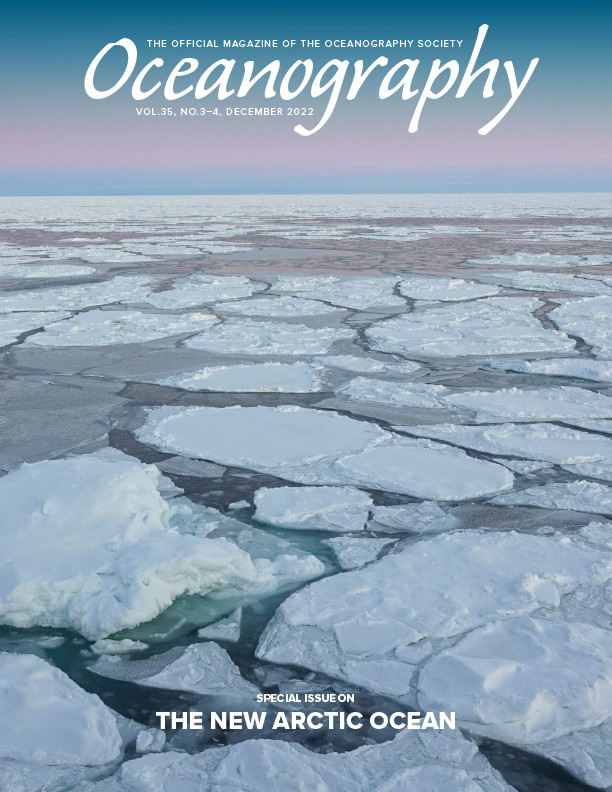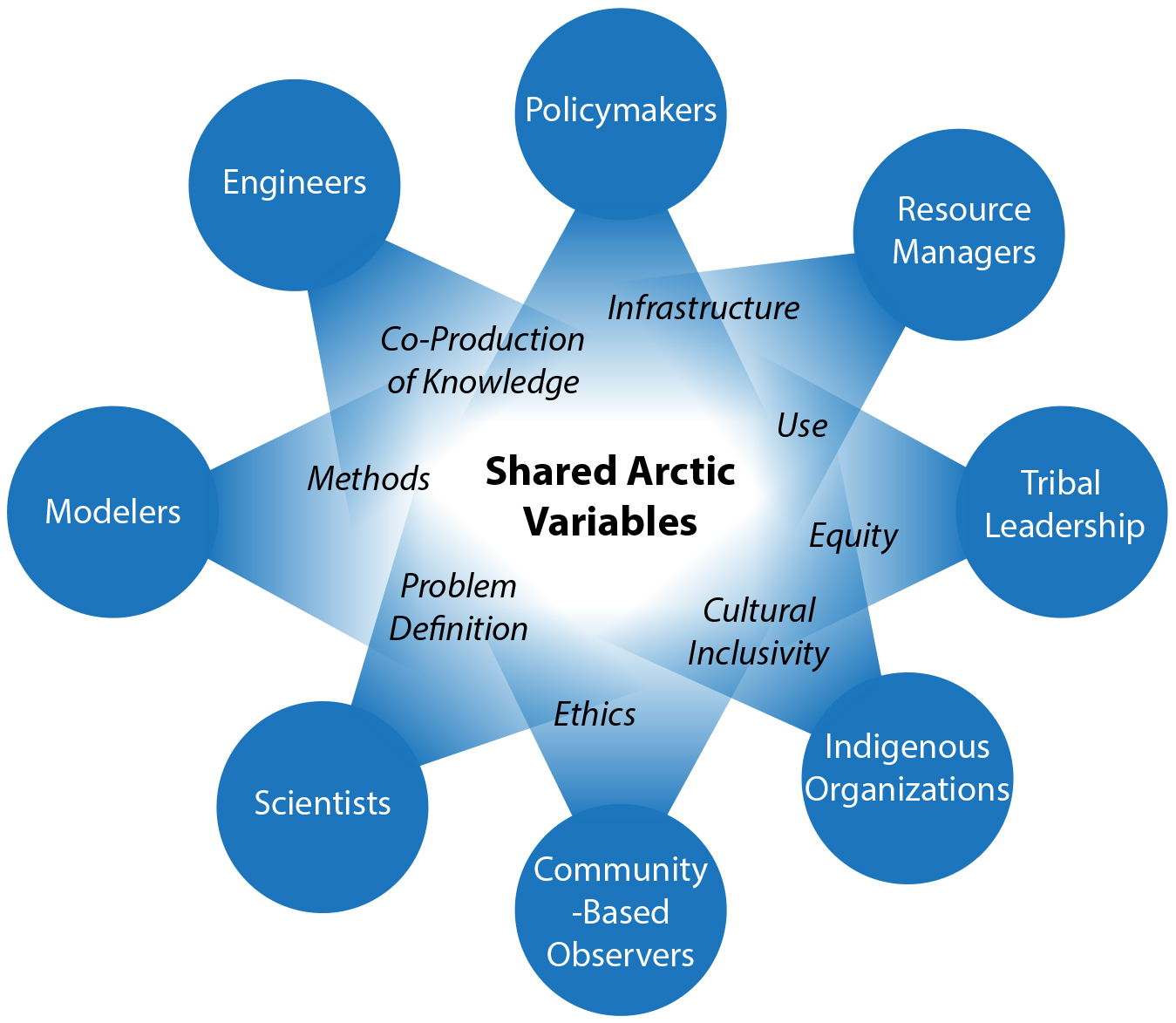Full Text
Rapid Arctic environmental change requires improved collaboration across observing activities that support adaptation and response from local to pan-Arctic scales. The Research Networking Activities in Support of Sustained Coordinated Observations of Arctic Change (RNA CoOBs), in partnership with the Food Security Working Group (FSWG), supports an Indigenous-led project on food security. These efforts tie into the broader goals of the Sustaining Arctic Observing Networks (SAON) Roadmap for Arctic Observing and Data Systems (ROADS). SAON is an open initiative of the International Arctic Science Committee and the Arctic Council, uniting Arctic and non-Arctic countries and Indigenous, regional, and global organizations that support improved observing network development and integration. SAON has been advancing a partnership development framework under ROADS that adds value to different observing activities by providing common context and identifying shared goals.
SAON, drawing on such forums as Arctic Observing Summits (AOSs) and Arctic Science Ministerials, has begun to quantify the shared societal benefits that sustained observations of a changing Arctic provide to Arctic and non-Arctic countries as a first step in the ROADS process. Also, SAON’s Committee on Networks has assembled inventories of existing observing activities. ROADS is leading the identification of variable sets that address high-priority information needs. From such shared Arctic variables—a concept that recognizes both strengths and limitations of essential variable approaches used by global networks (Starkweather et al., 2021)—flow enhanced requirements that help guide the design of the evolving observing and data systems in support of broadly shared benefits. Four key principles guide this work: (1) Indigenous peoples’ equitable partnerships and funding for their active participation is critical to ROADS; (2) all aspects of the ROADS process should support broadly shared benefits from observing and data systems; (3) the ROADS process should complement and integrate, without duplication, planning approaches used by existing networks (regional to global), activities, and projects; and (4) ROADS should support stepwise development through a flexible and evolving structure that allows grassroots identification of themes, infrastructures, and areas of regional interest (Starkweather et al., 2021).
In collaboration with the FSWG, RNA CoObs supports this process with a focus on the Pacific Arctic sector. It seeks to: (1) capture requirements for a set of shared Arctic variables with the FSWG and communities in the region; (2) collaboratively develop an engineering design for observing activities, drawing on observing system simulation to help guide this process; (3) design or adapt information infrastructure to share data and information products with users; and (4) build a community of practice cutting across regions, disciplines, and knowledge systems. This work is meant to explore how an internationally coordinated roadmap for Arctic observing can be developed.
The FSWG views food security and food sovereignty through an Indigenous lens, seeking to weave health and wellness into every aspect of an observation system (AOS, 2020). Equitable inclusion of Indigenous peoples must be realized both at the advising and subject matter expert levels throughout ROADS to be successful. The FSWG helps ensure an inclusive process and maintains food security as a central concept within observing network planning. Three Indigenous liaisons assist in this process by facilitating and coordinating community outreach, international participation, and development of ethical guidelines and protocols. Guided by AOS 2020 recommendations, the liaison team connects RNA CoObs, ROADS teams, and rural and Indigenous community members to support community-driven research and monitoring focused on health and wellness, one of six food security dimensions laid out by the Inuit Circumpolar Council’s Alaskan Inuit Food Security Conceptual Framework (Inuit Circumpolar Council-Alaska, 2015).
The liaison team works with the FSWG and RNA CoObs to address SAON goals for creating a roadmap to a well-integrated Arctic Observing System, promoting free and ethically open access to all Arctic observational data, and ensuring sustainability of Arctic observing by integrating a western framework with the social, economic, spiritual, and cultural needs of Indigenous peoples and others within the Arctic. These goals and the RNA framework were created outside the Indigenous community, and the FSWG is doing its best with a framework that is fundamentally at odds with what many communities, organizations, and tribes continue to request. This work enriches our understanding of how to co-produce variables (Figure 1). The FSWG applauds the efforts of SAON, ROADS, and RNA CoObs, but recognizes concerns raised about the reductionist approach inherent in a shared Arctic variable and about how best to make use of research and observation efforts to assist in meeting Inuit goals for securing food sovereignty and food security. This requires overcoming challenges to effective participation in policy and regulatory bodies over traditional resources and addressing a lack of acceptance and acknowledgment of Indigenous knowledge and management practices that have kept Inuit in the Arctic in balance with their ecology since time immemorial.
|
|
An important step in helping reach SAON goals through the FSWG is recognizing that representation and perspectives of Indigenous academics, scholars, and knowledge holders are key to ensuring the ROADS process is an Indigenous-led project. Another important step in meeting collective goals is building capacity within rural communities by funding their participation and current projects that align with the FSWG.


